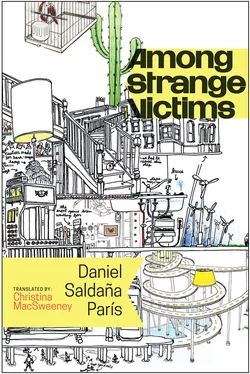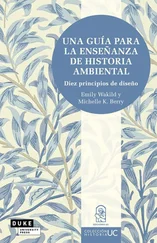Mr. X does not reappear as a character or reference in the rest of the Considerations or in Foret’s letters to Bea. His prophecies, taken by many as amusing apocrypha (which they may be), leave Foret in a state approaching a trance, and under this influence he writes some of the most celebrated sections of his Considerations, or such is suggested by the chronology of the letters. Bea dies, taking with her to the grave the secret of the authenticity, or otherwise, of Mr. X’s prophesies.
Traditional scholars of Foret’s work, fearful of the consequences, pour fervent scorn on the affair. It’s impossible to know what they think at night, away from their offices, their classrooms, and their university publishers, when doubt or suspicion or irrational vacillation seep through their sleepless eyelids. None of them have written anything on the subject.
 A
A 
An intensely white smoke, issuing from some branches burning without any visible flame on the side of the street, rises into the equally white light of Nueva Francia, in the middle of which Adela’s untidy black hair darkens a precise area of the town.
Marcelo Valente walks a little way behind her, responding laconically to the questions about his status and origins.
“From Madrid.”
. .
“Yes, at the University of Los Girasoles.”
. .
“A whole year.”
. .
“I got here about a month ago.”
. .
“No way. What made you think I was a historian? Do I look like a historian?”
. .
“Ha, ha. And what are European historians like?”
. .
“No. I’m in the aesthetics department. In philosophy.”
Adela is a strong woman. While Marcelo is driving his noisy car, alert to the possible military checkpoints, the possible roadblocks organized crime has prescribed for the community, she stares at the semidesert landscape of Nueva Francia, her mouth twisted in an inscrutable expression. She also works at the university, although Marcelo has never seen her there. This is explained by the fact that she has a free term with no classes, only a couple of consultations she can do at home. She lives right in the center of Los Girasoles in, she says, a colonial-style house with an interior patio. In this patio live her adored cacti and the odd aromatic plant.
Her field is not particularly clear: she did an undergraduate degree in law, has a master’s in human rights, or something similar, and a PhD in history, though no one can understand how it was conferred. She gives free legal advice to women harassed by the “patriarchal system of the administration of justice,” which, after a series of prudent but interested questions on Marcelo’s part, turns out to mean she gets women out of prison — women who grow poppies for the drug trade, or the wives of the men who grow poppies for the drug trade, or the wives of the narcos imprisoned for abetting the growing of poppies. (Marcelo isn’t clear about the nuances, but whatever the case, it has to do with deeply real areas of human existence his Madrid theoretical outlook will never manage to comprehend.)
Adela also asks questions and learns things about Marcelo Valente’s life. That he was born in Madrid, that he lived in the center of that city and then, later, somewhere on the outskirts, that he studied philosophy in the first years of a democratic Spain. The post-Franco opening up arrived at the peak of his twenty-something fervor, but he was one of the few members of his group of friends to free himself from the irreversible rigors of heroin, punk, and other similar temptations that abounded at that time.
Marcelo speaks quickly, tripping over his words in his haste, as if nervous about the idea of having a new friend — someone more visually pleasing than chubby Professor Velásquez — with whom he can surely have good times during his stay in Los Girasoles.
When they reach the town, Adela gives Marcelo directions to the door of her house. The professor’s car stops in the shade of a jacaranda tree, and Adela, before getting out, hands him a slip of paper on which she has scribbled a number (hers). They make their farewells with a kiss on the cheek that lasts a little longer than necessary.
Marcelo doesn’t think of her as a potentially great lover until that night in his own bed, when he lingers over the details of Adela’s figure outlined against the bar in Los Insurgentes, in the horrific Nueva Francia. According to her story, she had driven to that small town in her own car, but it had broken down and she had decided to have a drink in the cool of the cantina before sorting out her means of transport. She would come back the next day, in the pickup belonging to her trusted mechanic, to rescue her vehicle from possible Nueva Francian shoot-outs.
 B
B 
Mexico City was, for Foret, an ideal place, at least at first. No one knew him there, and he could indulge his excesses sheltered by the general brouhaha of a revolution he didn’t completely understand. Foret’s Spanish was rudimentary, sprinkled with French expressions he pronounced with what he thought to be a Mexican accent. Nevertheless, he felt comfortable in the language. French seemed to him a decadent tongue, and English too laconic; in contrast, Spanish was made to the measure of suffering. Only in Spanish could he miss Bea before she came to Mexico, and feel his words, full of open vowels, matched his emotions.
Of course, the students at the boxing school couldn’t make head or tail of their eccentric teacher’s babbling, but they sensed a vague authenticity in Foret’s enthusiasm and allowed themselves to be guided by him, copying the ridiculous movements of his feet. The owner of the gym very quickly realized Foret was a complete imposter, but he left him alone since he thought the teacher’s foreign name added a touch of elegance to his business. What’s more, Richard had lost a celebrated battle, two years before, against the world champion, which at least gave assurance of his bravery and the efficacy of his contacts in international boxing.
Bea arrived, as has been said, in January 1918, and they were able to resume their love affair as if they had only been separated for a few hours. They didn’t even mention the heartbroken letters Richard had sent her with religious punctuality during those months, flirting at times with suicide as a form of emotional blackmail to draw her into his arms.
Mexican legislation was chaotic, not to say inoperative, and no one bothered to investigate Bea’s earlier love life — as she had never divorced her first husband, she couldn’t legally marry Richard. But they did marry, without really taking matrimony seriously, without any pretense that its official status substantially altered their life together.
They had, perhaps, too many plans, and Foret had acquired the bad habit of dreaming of a perfect city and projecting his hyperbolic desires onto an enthusiastic Bea. Buenos Aires continued to pulse within his cravings with a mystic resonance, the justification for which was unclear to anyone.
They lived in the center of Mexico City, in a hotel a few blocks from the boxing academy. Bea would spend the mornings working on a long poem, which she prudently lost at a later date so as not to be tormented by the memory of the joy that had been wrested from her. Richard went out early; he would pass the first hours of the day at the gym or in the Bosque de Chapultepec, doing the regular physical training that helped him calm down and temporarily expelled the darkest shadows from his head. Afterwards, three times a week, he trained the young athletes in the Tacuba school, and in the afternoon returned to the hotel, where he existed on a diet of maize, rice, and beans; Bea’s inheritance, administered by her late father’s attorney and normally sent to her every three months, ran the risk of disappearing in a country like Mexico, and they had yet to find a means of receiving the money without putting their lives at risk. Fortunately the owner of the hotel had allowed them to take up residence on indefinite credit until they resolved their problems, placing more confidence in Bea’s manners than in her husband’s menacing physique and imperfect Spanish.
Читать дальше

 A
A 







